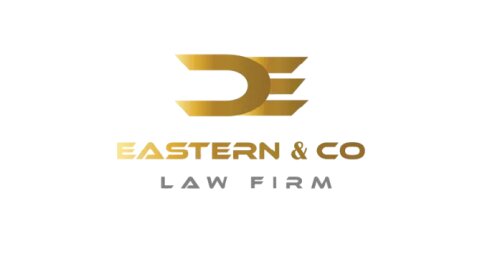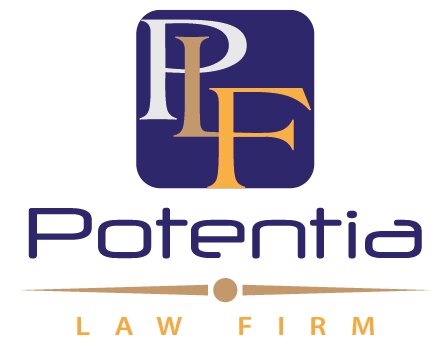Best Foreclosure Lawyers in Dokki
Share your needs with us, get contacted by law firms.
Free. Takes 2 min.
Free Guide to Hiring a Real Estate Lawyer
List of the best lawyers in Dokki, Egypt
1. About Foreclosure Law in Dokki, Egypt
Foreclosure in Dokki, Egypt involves legally enforcing a loan repayment default by selling a mortgaged property. The process is court-supervised and follows the Egyptian Civil Code and Civil Procedures Code, with enforcement actions typically handled by the local courts in Giza. In urban districts like Dokki, banks and lenders use court-ordered foreclosure procedures to recover owed sums, often via a public auction of the mortgaged asset.
As a Dokki resident or borrower, you should understand that foreclosure is not a single step but a sequence of notices, court filings, and possible negotiations. The exact path can depend on whether the lender has a registered mortgage, how the loan agreement was structured, and whether any defenses or negotiations are pursued. Local court practices can also influence timelines and required documentation.
Key takeaway: Foreclosure in Dokki is a court-regulated process anchored in national legislation, and local court practices will shape the pace and outcome of your case.
“Foreclosure and enforcement of judgments in Egypt rely on the Civil Code and Code of Civil Procedure, with court-driven auctions used to realize secured debt.” - Ministry of Justice guidance
2. Why You May Need a Lawyer
- Bank files foreclosure after non payment on a Dokki mortgage: A lawyer can review the loan documents to determine if the bank followed the proper notices and if the default amount is accurate.
- Disputing the foreclosure timeline or notice validity: An advocate can challenge whether the lender provided required notices on time and whether service complied with Egyptian procedures.
- Seeking a loan modification or settlement: A legal counselor can negotiate with the lender to restructure debt, possibly avoiding sale while you stay in the property.
- Joint ownership or family property involved: If more than one person owns the property, a lawyer can coordinate actions among co owners to protect your share and rights.
- Alleged mis calculation of interest, fees, or penalties: An attorney can audit charges to ensure the lender applies correct rates and penalties according to law and the loan agreement.
- Challenging the foreclosure at auction: If the bid process or auction rules appear improper, a solicitor can seek a stay or contest the sale terms in court.
3. Local Laws Overview
The Egyptian Civil Code governs contracts, obligations, and security interests, including mortgage agreements that may trigger foreclosure if a borrower defaults. It provides the substantive framework for what a lender may do and what protections a borrower may claim.
The Code of Civil Procedure governs how foreclosure actions are brought, served, and decided in court. It covers timelines, notices, evidence rules, and the procedures for enforcing judgments and conducting property sales.
Mortgage and real estate enforcement provisions relate to how a secured loan is enforced and how real estate is publicly recorded and sold in satisfaction of debt. These provisions are implemented through a combination of national statutes and court practice, with local variations in Dokki and the greater Giza area.
Recent considerations: Egypt has continued to refine enforcement procedures to improve clarity and timelines, including updates to notification methods and court handling of foreclosure cases. Lenders and borrowers should verify the latest procedural guidance with the relevant courts in Giza and consult an advocate for current practice in Dokki.
“Foreclosure enforcement relies on the core Civil Code and Civil Procedure Code, with ongoing refinements to enforcement practice and notices.” - Ministry of Justice
4. Frequently Asked Questions
What is foreclosure in Dokki, Egypt?
Foreclosure is the legal process for recovering a loan by selling a mortgaged property after the borrower defaults. The process is court supervised and followed by a public sale if negotiations fail.
How do I start foreclosure proceedings in Dokki?
A lender files a request with the appropriate Egyptian court in Giza, and the court issues notices to the borrower. An advocate can help prepare the filing, ensure proper service, and monitor the case timeline.
What documents are needed to file foreclosure?
Common documents include the loan agreement, mortgage deed, title deed, proof of default, payment history, and borrower contact details. An advocate can assemble and organize these for filing.
Do I need a lawyer for foreclosure?
Having an advocate is highly advisable. A lawyer can assess defenses, negotiate with the lender, and ensure adherence to procedural requirements to avoid unnecessary delays.
How long does foreclosure take in Dokki?
Timeline varies, but a typical court-driven foreclosure in Egypt may span several months to over a year depending on complexity, court backlog, and whether appeals or auctions occur.
How much does a foreclosure attorney cost in Dokki?
Costs vary by case complexity and attorney experience. Expect consultation fees, hourly rates, and potential success-based arrangements. Ask for a written retainer and transparent fee structure.
Can the debtor stop foreclosure by paying the debt?
In many cases, payment of the default amount can halt or pause foreclosure, especially if the payment clears the breach under a negotiated settlement or modification.
What is the difference between foreclosure and eviction?
Foreclosure ends when the lender secures repayment through sale or settlement; eviction is the physical removal of occupants from the property, which may occur after a sale or court order.
Do I qualify for legal aid or pro bono help?
Eligibility for legal aid depends on personal and financial circumstances. An advocate can assess options for pro bono or subsidized services if available locally.
Can negotiations or mediation help avoid foreclosure?
Yes. Many lenders prefer settlements, loan modifications, or forbearance. A lawyer can negotiate terms and may arrange mediation or restructuring.
What happens at a foreclosure auction?
The property is offered for sale to the highest bidder under court supervision. Proceeds repay the loan and costs; excess may return to the borrower if permitted by law.
Can I appeal a foreclosure decision?
Appeals may be available depending on the grounds and timing. An advocate can advise on appeal options and deadlines after the decision is issued.
5. Additional Resources
- Ministry of Justice (Egypt) - Official site - Provides regulatory guidance and enforcement procedure information for legal matters, including foreclosure-related processes.
- Egyptian Government Portal - Central hub for government services and legal resources relevant to residents and property matters.
- CAPMAS - Central Agency for Public Mobilization and Statistics - Official statistics on housing, property, and economic indicators that inform foreclosure trends.
6. Next Steps
- Identify your goals and timing for the foreclosure matter, such as avoiding sale or obtaining a modification. Create a simple timeline with key dates.
- Gather all relevant documents: mortgage deed, loan statements, notices, communication with the lender, and property title details.
- Research foreclosure-focused advocates in Dokki or greater Giza with experience in mortgage enforcement and real estate disputes.
- Schedule initial consultations to discuss defenses, settlement options, and potential costs. Bring your document set.
- Ask each advocate for a written retainer, fee structure, and anticipated timeline for drafting and filings.
- Decide on a strategy: consent modification, forbearance, or defense against invalid procedures. Confirm with the lender before any agreement.
- Begin formal proceedings if needed, ensuring all filings and notices are timely and properly served in line with court requirements.
Lawzana helps you find the best lawyers and law firms in Dokki through a curated and pre-screened list of qualified legal professionals. Our platform offers rankings and detailed profiles of attorneys and law firms, allowing you to compare based on practice areas, including Foreclosure, experience, and client feedback.
Each profile includes a description of the firm's areas of practice, client reviews, team members and partners, year of establishment, spoken languages, office locations, contact information, social media presence, and any published articles or resources. Most firms on our platform speak English and are experienced in both local and international legal matters.
Get a quote from top-rated law firms in Dokki, Egypt — quickly, securely, and without unnecessary hassle.
Disclaimer:
The information provided on this page is for general informational purposes only and does not constitute legal advice. While we strive to ensure the accuracy and relevance of the content, legal information may change over time, and interpretations of the law can vary. You should always consult with a qualified legal professional for advice specific to your situation.
We disclaim all liability for actions taken or not taken based on the content of this page. If you believe any information is incorrect or outdated, please contact us, and we will review and update it where appropriate.









